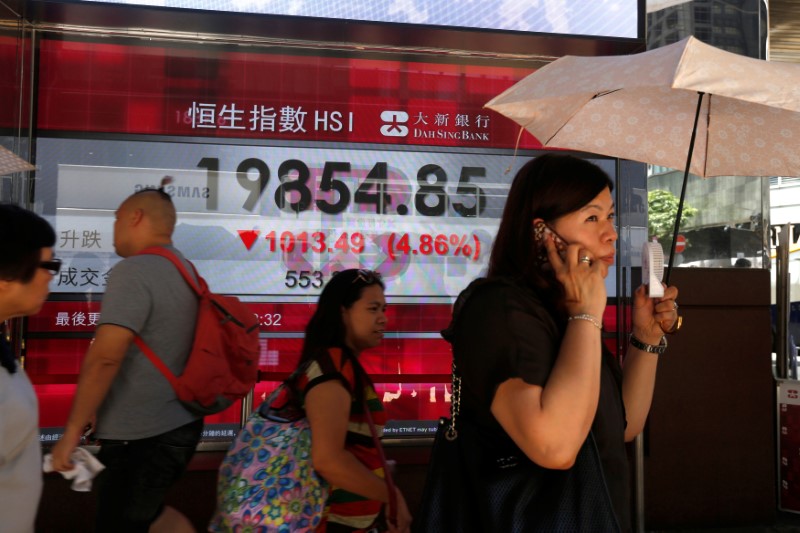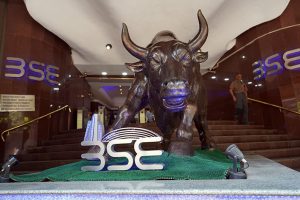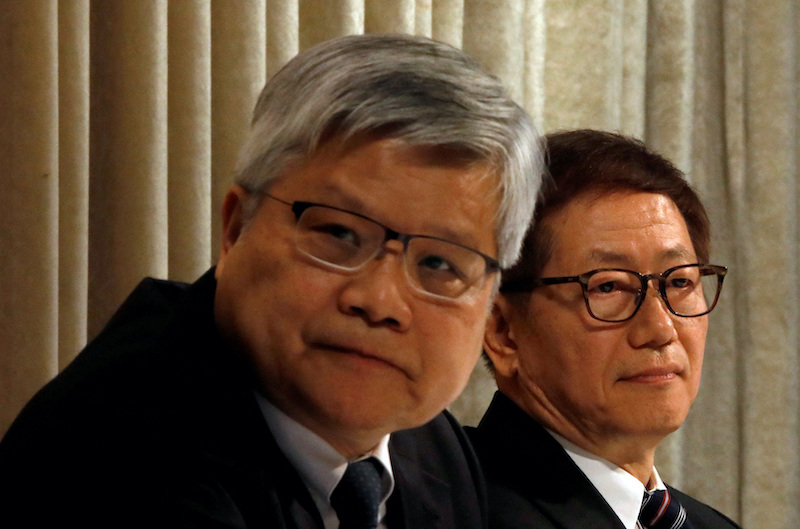Asia’s major stock indexes were in retreat on Friday as the spectre of long-term high interest rates cast a shadow over trading floors, dampening risk appetite.
Shares across the region tracked declines on Wall Street after robust US economic data stoked bets that stubborn inflation may delay Federal Reserve rate cuts this year.
All three main US equity indexes declined overnight, led by a 1.5% slump for the Dow, after US manufacturers reported a surge in prices for a range of inputs, suggesting that goods inflation could pick up in the months ahead.
Also on AF: China, South Korea, Japan to Meet in First Summit in 4 Years
Japan’s Nikkei slumped to a weekly loss, sagging 1.17% to 38,646.11 as of the close, and had earlier dipped as much as 1.9%. The broader Topix dropped 0.44%.
Chip stocks that had rallied the previous day on the back of Nvidia earnings retreated sharply to be among the Nikkei’s worst performers.
For the week, the Nikkei lost 0.36%, but remains up more than 15% this year, keeping it squarely among the top performing markets globally. It rose to an all-time high of 41,087.75 on March 22 before pulling back over the following month to as low as 36,733.06.
China stocks fell as well, tracking global markets lower. Also denting investor sentiment was Beijing’s second day of war games around Taiwan, just days after Taiwan’s new President Lai Ching-te was sworn in, as its military performed drills testing their ability to “seize power” and control key areas.
China’s blue-chip CSI300 index was down 0.43% with, earlier in the session, its financial sector sub-index lower by 0.66%, the consumer staples sector down 0.81%, the real estate index down 3.19% and the healthcare sub-index down 0.89%.
The Shanghai Composite Index dipped 0.88%, or 27.52 points, to 3,088.87, while the Shenzhen Composite Index on China’s second exchange slid 1.10%, or 19.26 points, to 1,734.80.
Chinese H-shares listed in Hong Kong – stocks belonging to companies from the Chinese mainland – fell 1.29% to 6,615.3, while the Hang Seng Index lost 1.38%, or 259.77 points, to end at 18,608.94.
Alibaba’s Weekly Slide
Hong Kong shares of Alibaba Group Holding Ltd slipped 0.3%, on course for fifth straight session of decline, after the Chinese e-commerce giant said on Thursday it would sell convertible bonds to raise about $4.5 billion and plans to use some of the proceeds to repurchase American Depositary Shares.
Elsewhere across the region, in earlier trade, there were also losses in Seoul, Mumbai, Singapore, Sydney, Wellington, Taipei and Manila.
MSCI’s broadest index of Asia-Pacific shares outside Japan fell 1% and was on course for a 1.5% weekly decline, snapping its four-week winning streak.
The risk-averse mood was set to continue in Europe, with the Eurostoxx 50 futures down 0.44% and FTSE futures 0.75% lower.
Data on Thursday also showed US jobless claims dropped while S&P Global’s Flash PMI survey showed business activity expanded faster than economists forecast in May.
The robust figures along with hawkish minutes from the Fed’s last meeting earlier in the week has led traders to dial back their bets on rate cuts this year.
Markets are now pricing in just 35 basis points of easing in 2024, versus expectations of 150 bps of cuts at the start of the year, with a rate cut fully priced-in only in December.
Yen Under Pressure
The changing expectations around US rates has lifted yields, with the benchmark US 10-year yield touching a more than one-week peak of 4.498% on Thursday. It was last at 4.466% in Asian hours on Friday.
The dollar has also benefited, with the dollar index, which measures the US currency against a basket of six major peers, up nearly 0.6% on the week to 105.09, on course for its largest one-week rise since mid-April.
The dollar’s ascent has kept the pressure on the yen. The Japanese currency was last at 157.04 per dollar, not far from the more than three-week low of 157.19 touched on Thursday.
Sterling was muted on Friday at $1.2690, having touched a two month high of $1.2761 on Wednesday as traders ponder rates outlook in the wake of data this week showing inflation did not slow as much as expected in April.
The start of the election campaigns of British Prime Minister Rishi Sunak and his Labour Party rival Keir Starmer, drew eyes on Thursday though analysts said the poll was unlikely to have a major effect on markets.
In commodities, oil prices were steady, with Brent crude at $81.38 a barrel. US West Texas Intermediate crude futures were at $76.86.
Gold prices rose 0.24% to $2334.16 per ounce but are set for a 3.3% decline for the week, their biggest weekly drop since late September.
Key figures
Tokyo – Nikkei 225 < DOWN 1.17% at 38,646.11 (close)
Hong Kong – Hang Seng Index < DOWN 1.38% at 18,608.94 (close)
Shanghai – Composite < DOWN 0.88% at 3,088.87 (close)
London – FTSE 100 < DOWN 0.43% at 8,303.64 (0935 BST)
New York – Dow < DOWN 1.53% at 39,065.26 (Thursday close)
- Reuters with additional editing by Sean O’Meara
Read more:
Nvidia Chip Prices Take a Hit in Duel With China’s Huawei
Hedge Funds Build Holdings in Underpriced Chinese Equities
TSMC Sees ‘Golden Age’, With AI Fuelling 10% Chip Growth
Nikkei Jumps on Nvidia Boost, Rate Bets Drag on Hang Seng























